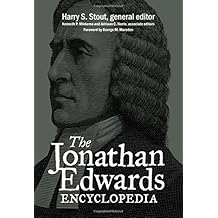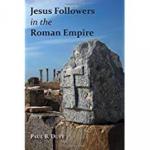I’ll be honest, I’ve never been a big Jonathan Edwards fan (Irenaeus is my homeboy!). I’ve always found Edwards elegant yet verbose, passionate while prolix, dry in places though wonderfully dramatic elsewhere. Plus the dude owned slaves which has always bummed me out. However, I’ve been revising Evangelical Theology for a second edition and I have – if only to satisfy my colleague Rhys Bezzant – been reading a fair bit of Edwards of late, and I’m glad I did. I think Edwards is a good mixture of pious enthusiasm and American puritanism. I’ve found Edwards helpful on God’s glory, redemptive history, participation in Christ, and the Holy Spirit. Sadly, Edward’s famous sermon Sinners in the Hands of an Angry God has been inserted into collections of American literature only to inoculate people from Edwards, yet a closer reading of the corpus shows that Edwards is far from the caricature of all wrath, fire, brimstone, and judgment. Edwards is a truly aesthetic theologian.
I’m glad to say that my forays into Edwards of late have been guided by two recent books both from Eerdmans.
 Harry S. Stout (editor)
Harry S. Stout (editor)
The Jonathan Edwards Encyclopedia
Grand Rapids: Eerdmans, 2017.
Available at Amazon.com
This is a good starting point for anyone who wants to know what Edwards thought of something or how Edwards related to something. Good articles on everything from “Beauty” to “Great Awakening” to “Slavery” to “Union with Christ.”
 Oliver D. Crisp and Kyle C. Strobel
Oliver D. Crisp and Kyle C. Strobel
Jonathan Edwards: An Introduction to His Thought
Grand Rapids: Eerdmans, 2018.
Available at Amazon.com
This is the first introduction to Jonathan Edwards that I’ve read and it should prove popular. Crisp and Strobel do a good job of surveying Edward’s intellectual context and his theology. The chapters on “Atonement” and “Salvation as Participation” were excellent reads. I wish I’d read some of this earlier, the discussion on Edwards and justification would have been helpful to me a decade ago since “Edwards focuses on Christ as the location of justification, positing that only Christ is truly justified in himself. He is righteousness for the believer because he is the one who walked perfectly before God in faithfulness” (164-65). Also, the chapter on “Becoming Edwarsean” is great and is all about how Edwards can help us follow “the upward call of God in Christ” (Phil 3:14). I’m also meditating on how Edwards could be a possible mediator between Reformed scholasticism and global Pentecostalism (PhD anyone!).












